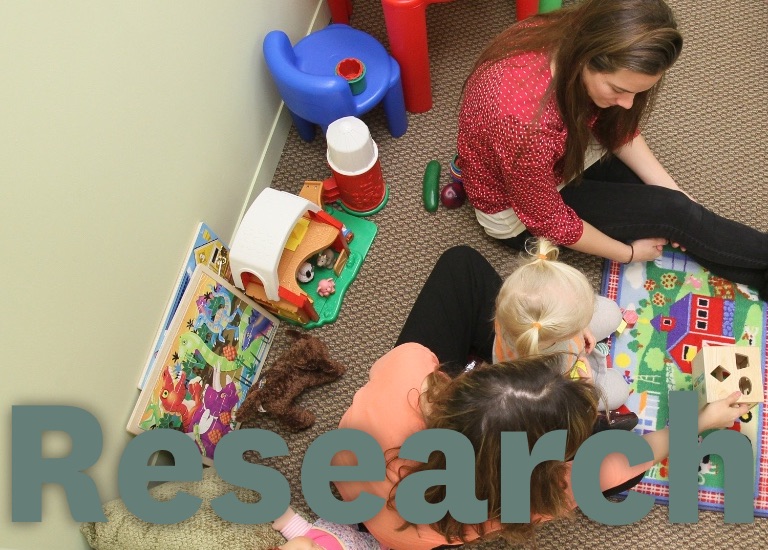Disparity Reduction and Equity in Autism Services (DREAmS)
SIEFL Core ⟩
The mission of the Disparity Reduction and Equity in Autism Services (DREAmS) Lab, led by Dr. Amber Angell, is to identify, measure, understand, and reduce disparities in autism diagnosis and services. The lab’s overarching vision is to eliminate health disparities and achieve health equity for all individuals on the autism spectrum. The lab is composed of a multidisciplinary team of researchers, clinicians, students, and volunteers who use a range of health services research methods and designs, including surveys, large data analysis of health records, in-depth qualitative methods, and mixed methods approaches. Their research focuses on groups of autistic people who are under-identified with autism, underrepresented in research, and underserved by health systems. The lab’s current projects are focusing on autistic girls and women, Latinx autistic children and their families, and LGBTQIA+ autistic adults.
⋯
Active projects
SIEFL Core ⟩
Gastrointestinal (GI) problems are among the most common concern reported by families of autistic children and youth, but efforts to understand the nuances of GI symptoms are stymied by a lack of longitudinal research using real-world clinical datasets. We will use a multimethod, participatory…
Period: Aug 2024 – Apr 2029
Federal Funding
$2,951,222
Completed projects
SIEFL Core ⟩
Delayed diagnosis and under-identification of autism spectrum disorder (ASD) have significant personal, public health, and economic impacts; and girls and Latino children are disproportionately impacted by this problem, in part because clinicians are less likely to recognize ASD risk factors in them…
Period: Mar 2022 – Feb 2024
Federal Funding
$467,187
SIEFL Core ⟩
Autistic youth have high utilization of acute psychiatric healthcare, including psychiatric hospitalizations and using the emergency department for psychiatric reasons, which may indicate that they do not receive sufficient lower-level health services. Community-based therapeutic services like…
Period: Oct 2020 – Sep 2022
Private Funding
$99,998
SIEFL Core ⟩
Girls and women are increasingly identified and diagnosed with autism; however, very little research has focused on their health and healthcare needs. Emerging research suggests that autistic women may face disparities in women’s healthcare access and utilization compared to neurotypical…
Period: Oct 2020 – Aug 2022
Federal Funding
$123,292
Selected publications
2023
Angell, A. M., Carreon, E. D., Akrofi, J. N. S., Franklin, M. D., Taylor, E. E., Miller, J., Crowley, C., & Maher, S. O. (2023). Challenges and facilitators to telehealth occupational therapy for autistic children during COVID-19. OTJR: Occupational Therapy Journal of Research, 43(3), 513-522. https://doi.org/10.1177/15394492221142597 Show abstract
Pre-pandemic, telehealth occupational therapy (OT) for autistic children appeared promising, but research was limited. The pandemic provided a unique opportunity to investigate how clinics transitioned to telehealth. The purpose of this study was to examine barriers and facilitators that influenced delivery of OT services through telehealth for autistic children during the pandemic. We conducted semi-structured qualitative interviews with 13 participants (three administrators, six OTs, and four parents of autistic children) at three Los Angeles area clinics over a 7-month period. We used narrative and thematic analysis to identify four themes. We identified (a) Challenges and (b) Facilitators to Conducting Telehealth OT, including practical strategies for successful facilitation, and (c) Negative and (d) Positive Outcomes of Conducting Telehealth OT. As telehealth will likely remain a viable means of OT service delivery in the future, our findings provide insight into ways that it can be improved and sustained.
In Chan News
July 10, 2024
New article explores how occupational science might reconcile authentic belonging and autistic camouflaging among intersectional populations.
January 17, 2023
Qualitative research explores perspectives of occupational therapists, clinical administrators and caregivers.
April 29, 2022
Findings provide new insights and elicit new questions for understudied autistic groups.





